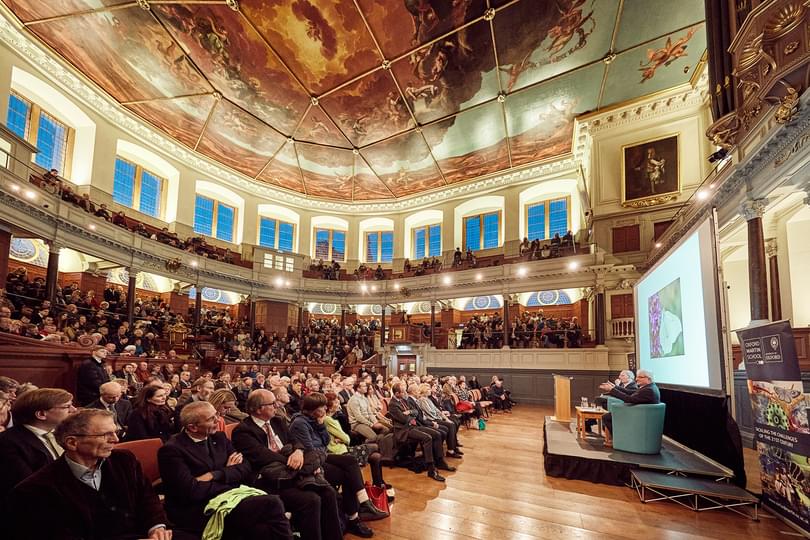
In a Sheldonian Theatre filled with dazzling sunshine that slowly became a clear star-lit evening, attendees to this year’s James Martin Memorial Lecture were treated to a lecture by one of the UK’s brightest scientific stars, Sir Paul Nurse.
Director of the Francis Crick Institute, former President of the Royal Society and recipient of a 2001 Nobel Prize, along with Leland Hartwell and Tim Hunt, for discovering the protein molecules that control cell division, Sir Paul is one of the UK’s most distinguished scientists. He presented to the audience a very simple, and yet immensely complex question – “what is life?”
In a lecture that was a whistle-stop tour through the microbiological, chemical, physical, zoological and philosophical concepts that connect yeast, butterflies and humans alike, we were reminded not only of the fundamental principles of life but also of human progress.
He guided us from the 1665 discovery of the cell by Robert Hooke here in Oxford to Frederick Sanger’s DNA genome sequencing through Kant, Mendel, Pasteur, Darwin and Schrödinger. In doing so, he described a set of fundamental principles of biology – six concepts that connect all life, from a single bacterium to a blue whale.
Sir Paul went further, outlining that he believes these principles would also apply to any other life discovered in the universe. However, after reminding us that “this is the only corner of the universe where we can be sure that life exists,” he concluded with a humbling challenge.
“All life, including ourselves, is connected to all other life,” he said. “But we are the only lifeform that is able to reflect on the meaning of that connection. We must protect all life on earth, and to do that we need to understand it.”